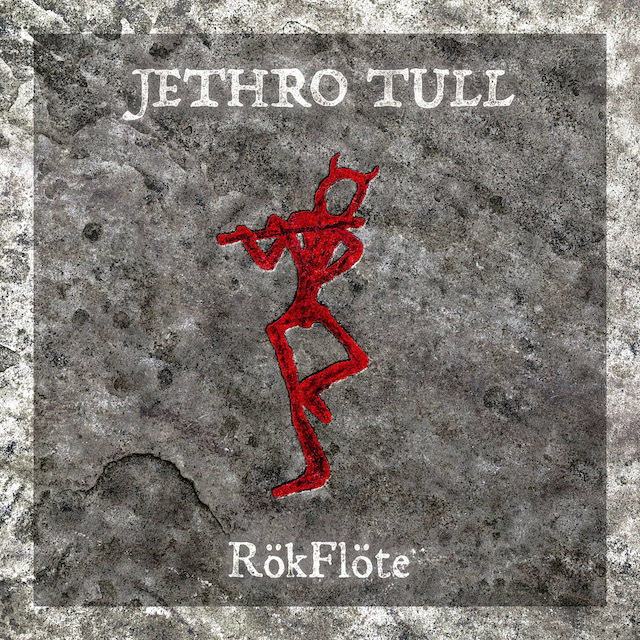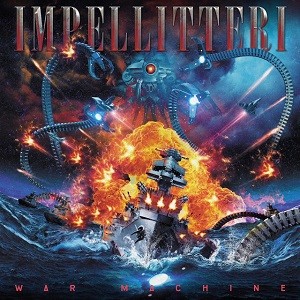JETHRO TULL’s IAN ANDERSON – “I Have No Interest In Working With Anybody When It Comes To Writing Music; It’s A Solitary Pursuit”
April 20, 2023, a year ago

Ian Anderson is a force of nature.
On top of mounting the greatest example of a reissue program in rock history, through his legendary fat remakes of the classic catalogue (The Broadsword And The Beast has seen delays), he’s recently done a box of prints of the album covers along with two new Jethro Tull albums in not much more than a year.
The latest is called Rökflöte and you won’t be reading much about it, due to the time and effort it takes to stick in the umlauts. But there should be lots of audio and video discussion, because fans all over the world love to talk Tull, old and new. Again, that’s due to the energy Ian throws at the brand, even at a youthful and flute-ful 75 years of age.
The new record floats upon a kind of two-pronged concept, as Anderson explains. “Well, it began with a vague notion at the end of 2021, that I would embark upon a new project, probably, you know, more instrumental and featuring the flute as a rock instrument as opposed to folk or classical or whatever. Then on the first of January, 2022, when I started work, I quickly settled on an idea of the first idea I had about writing some songs on the subject of polytheistic faiths. And I narrowed that down over the next half hour to thinking maybe I’ll look at Norse mythology. Because I didn’t know very much about that. In my studies of comparative religion over the years, I’d rather avoided Norse mythology, because of the connotations with, I suppose, right wing, nationalistic identification, whether it’s Wagner or, God help us, Heinrich Himmler or a bunch of Scandinavian heavy metal rock bands. It’s something that scared me off.”
“And then I thought, well, that shouldn’t scare me off. I should find a way to tackle the subject and try and do it sensitively and see if I can get something out of it that’s not hackneyed and derivative of what other people have already done. And so I tried to find a way to have a little fun with mythological Norse gods and looking at their characters, their functions, their roles in mythology, and to write the first three stanzas of each song in that historic context, and the final two stanzas to look at those characters’ personalities and relate them to something I know about in the present day as a parallel to the rest of the lyrics. I think that pretty much sums it up.”

“In the case of some of the music, not a huge difference,” answers Anderson, asked for a contrast against the previous album. “But The Zealot Gene began back in 2017. And we recorded… I think I’d finished four tracks, and 2018/2019 was a busy year for touring, and then Covid came along. So it took a while to actually finally conclude it. I mean, I waited and waited, hoping for the time where we could get back in the studio to do the last five songs, but that wasn’t going to happen, really. And by the time things had opened up for us to be able to tour again, I felt I really needed to have a finished recording. And so I had to finish it at home on my own. So there’s a certain… there’s an element of acoustic music in The Zealot Gene that is not really present in Rökflöte, which is, you know, I think more of a rock album, strongly featuring guitar, but featuring the flutes, mainly playing things derived from classical structures rather than jazz or blues. You won’t hear a lot of syncopation or flattened fifths in Rökflöte.”
Putting aside the lyrics, on this record, Ian had to reconcile traditional English folk music now with Scandinavian folk. I asked him how that works.
“Well, folk music as I know it, having had an interest in ethnic music for a long time, it does embrace Scandinavian music. One of my favourite bands is a band called Värttinä, who are not from Norway—they’re from Finland. And they, for example, derive a lot of their music from traditional themes and songs that had been passed down through the generations. But they do it in a way which is infused with elements of rock music and jazz and so it’s an eclectic thing. And that rather has been my position over the years, is to try and take some little inspirations here and there from a variety of sources and try and develop it into something that is my eclectic mix of things that appealed to me. So I use things from—I don’t know—Mediterranean music, Asian music of India, of China, music from different parts of the world, from Ireland and Scotland and England. Everything except Hawaiian guitars or Caribbean steel drums—those things do not figure in my music contract. They give me a headache, so I try and avoid them. I mean, my flute playing would probably deeply upset some Caribbean steel drum player who wasn’t used to that kind of a sound and would hate to hear that piercing roar of a wind instrument being played in the way that it was not designed to be played.”
Something I’ve asked a few rock folks lately is this question of whether they think their identity is wrapped up in the records they’ve made or all those hours they spend rehearsing and playing the songs live. Ian’s take on that one is a bit surprising.
“Well, I maybe leaned towards thinking of Jethro Tull as a live performance act when I first started, and making records was something you dutifully felt you had to try to do to come up with new material that you could play live on stage. So it was a functional part of the job. But that probably changed along the way in the mid-‘70s, where I thought, well, maybe making records for the sake of making records is really okay and we don’t necessarily have to play it all live on stage. In this day and age, I guess when I’m making a record, then that is everything I’m really concerned about. I try not to think too much about live performance. Because I’m confident that what we’ve arranged and recorded is going to be playable live on stage because that’s the way we’ve done it in the studio.”
“But when it comes to then leaving that record behind in the hands of the record company, and maybe some nine months go by before you’re actually able to release it just because of the factors in record production today… I mean manufacturing today, vinyl can take nine months. Some record companies are quoting one year to their artists before they can release on vinyl. So there are certain things that make it quite a lengthy process. Your new record has got to be pushed to one side. You come back to it many months later and try to rekindle that enthusiasm for performing some of it live on stage. But it doesn’t take long, really, to remember exactly what you played. We maybe just play through it two or three times and then we’re ready to do it live on stage. So it comes back very quickly. Even after nine months.”
When I relate to Ian that I’ve had guys regularly say to me that they hadn’t heard some record from the ‘70s or ‘80s since they recorded it, he says, “Well I’m different, because I have to listen to the music on a regular basis because of compilation albums and remixes. Plus there’s the lyric
book that I did a couple of years ago, which meant I had to listen to everything I’d ever recorded at least four or five times to transcribe all the lyrics and then check them right through to the final draft. I had to listen to the music, all of it yet again, to make sure that no typos or weird things had happened in the process of converting that to PDF files. So I’m very familiar with all of the music that I’ve ever written.”

The production on the new Rökflöte album is quite interesting, sort of electric but crisp and light, even the drums. In other words it’s definitely a rock album, but there’s a homey intimacy to the tones across the album.
“Well, basically it’s an album that we’ve rehearsed and recorded together,” explains Ian. “Then e have to try and capture the music in a live performance way. I don’t want to get too clever and too tricky about it. It’s recorded like it sounded to us when we played it. So the mixing and mastering of it, I’m not trying to radically change what it is I envisioned at the beginning of the writing process and with the arrangements,. In rehearsals, where we fine-tuned everything, everybody chipped in with their own little ideas and subtle variations. Then we stuck with that. I wanted to try and be pretty faithful to that. For me, production is really part of writing and arranging rather than something that is imposed externally afterwards by another person. So, the Jethro Tull music over almost all the years has been produced by me, because I’m writing it and singing it and arranging it and mixing it and doing all that stuff. So it’s just a facet of the whole global making of the record.”
And yes, to reiterate, Jethro Tull has always been a band where the writing fell almost exclusively to the flute-player standing on one leg. Asked who else from his current band—David Goodier, John O'Hara, Scott Hammond and Joe Parrish-James—contributed to the penning of the songs, Ian says, “Well, there’s only two of them who write music, one in a classical and choral way, and the other one in a kind of folk rock way. But I have no interest—and no offense to them—in working with anybody when it comes to writing music. It’s a solitary pursuit. I just want to do that by myself and follow my own nose. I don’t want to make compromises or introduce other elements, either musically or lyrically.”
“But that doesn’t mean that I don’t listen to what they have to say when it comes to the fine-tuning of the arrangements. Sometimes they’ll come up with an idea, which is not exactly writing music, but it’s part of the arrangement. And it’s a subtle difference, perhaps, to what I would have been happy with. So it’s always exciting to hear what other people have to offer. But I don’t sit down and collaborate on the writing process at all. I’m just not made that way. I wouldn’t do it with anybody. It’s just something I’m very uncomfortable with. I compare it to getting naked and getting into the sauna with another guy. I’m not going to do it. Are you going to ask me again? The answer is going to be the same every time. So yeah, push it out of your mind. It’s not going to happen.”
Even in Finland?
“Yeah, even in Finland. Even with Värttinä.”
(Photo - Assunta Opahle)











